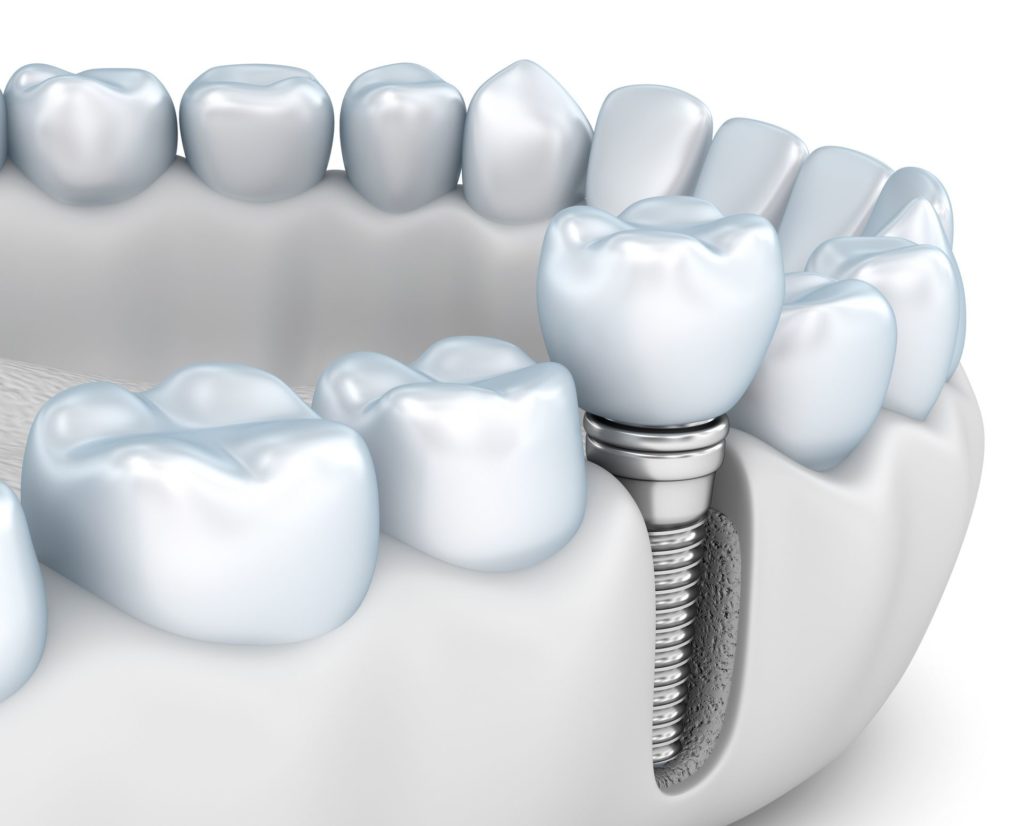Tooth loss can severely hinder your life. Gaps in your smile may mean a blow to your confidence. And missing teeth can make it harder to chew, bite, and speak without issue. Without tooth replacement treatment from your dentist, your oral health may decline further.
Missing teeth may also lead to deterioration of your jaw health. Restoring your smile with dental implants can stop this damage to your jaw, unlike other tooth replacement options. Read on to learn more about the impact of tooth loss on the jaw and how implant dentistry can help.

How Will Tooth Loss Affect My Jaw?
Healthy dental patients have teeth that extend into a root below the gumline, reaching the jaw. The tooth root acts as a stimulus to the bone there, keeping it strong and stable.
When a patient loses a tooth, the jawbone no longer receives this stimulation. In the tooth root’s absence, the bone begins to deteriorate.
This bone loss may make the face appear to sag and could cause remaining teeth to shift out of place. You will need intervention from your dentist to stop this process.
How Do Dental Implants Protect Jawbone?
A dental implant is a type of tooth replacement solution that uses one or more titanium post anchors. Your dentist surgically places the anchor into the jaw. As it heals, the anchor fuses with the jawbone, providing secure support for a prosthetic tooth.
After your recovery, the dentist will attach a crown, bridge, or denture to the anchor using an abutment at the gumline. Not only will you see cosmetic and structural restoration for your smile. But you can stop jawbone degeneration this way.
The anchor serves as a substitute for the missing tooth root, stimulating the jawbone. This stops bone loss and also encourages the regrowth of bone that may have already deteriorated.
You can preserve the facial and dental structure with this treatment. Removable dentures will replace teeth above the gumline only and cannot protect your jaw as implant dentistry can.
Will My Jaw Support a Dental Implant?
Though highly beneficial, not all patients can qualify for implant dentistry solutions. An implant relies on fusion with the jawbone to support the prosthetic teeth. Therefore, the patient must have enough healthy bone to support the implant fixture.
If too much bone has been lost due to tooth loss, the jaw might not be able to successfully sustain a dental implant. Your dentist can evaluate your jawbone health using x-ray imaging taken during a consult appointment.
The dentist may suggest a bone graft to add structure to the jaw if you have suffered bone loss. This involves taking bone material from elsewhere and placing it into the jaw.
The jaw might have enough stability to support a dental implant after you heal from this surgery. If this treatment is not feasible, however, you may need to discuss alternative tooth replacement options with your dentist.
